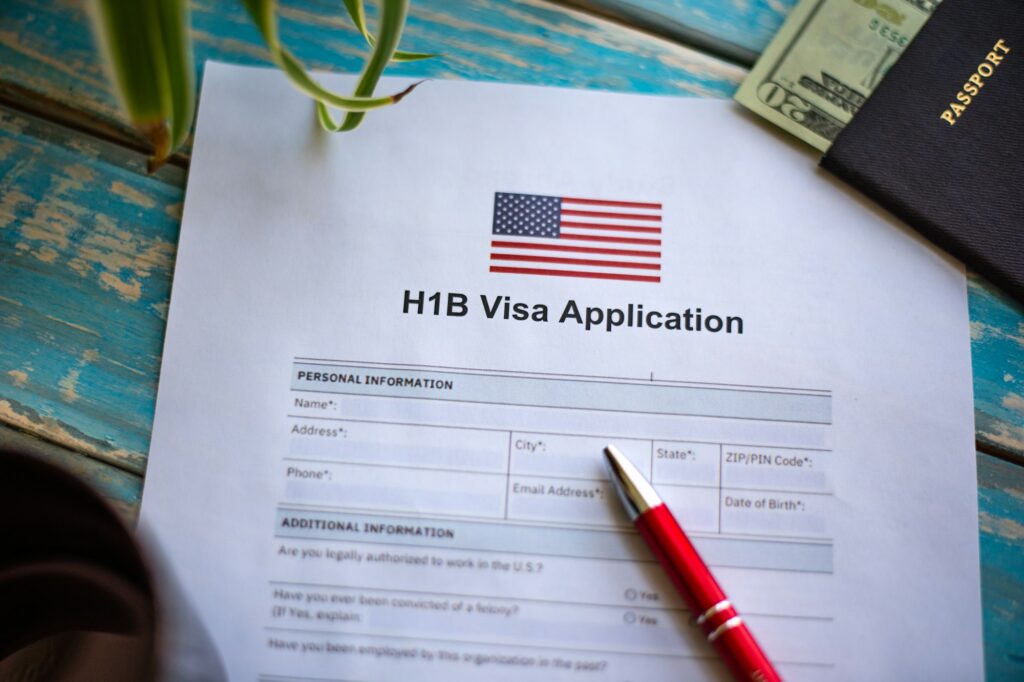Key Takeaways
- The reduction in H-1B visa sponsorships by major U.S. companies in 2024 marks a significant shift in how global talent mobility is being reshaped by economic and technological forces.
- Economic recession, AI-driven automation, and political uncertainties are driving U.S. firms to cut back on hiring international professionals.
- Indian workers, who dominate H-1B visa allocations, face unprecedented competition as the availability of these coveted visas continues to shrink.
- The shift raises broader questions about the future of global talent flows and the United States’ ability to remain a hub for innovation and international collaboration.
For decades, the H-1B visa has been a symbol of opportunity, enabling skilled workers from around the globe to contribute to the U.S. economy. In 2024, however, the landscape has shifted dramatically. Once a reliable pathway for international professionals—especially from India—to build careers in the United States, H-1B visa sponsorships are now in sharp decline.
Tech giants like Amazon, Google, Infosys, and TCS, which have historically been the largest sponsors of H-1B visas, have drastically reduced their approvals. Amazon, previously the leading sponsor, cut its approvals from over 11,000 in 2023 to just above 7,000. Other big names in technology and consulting, such as Google, Microsoft, Cognizant, and Deloitte, followed suit. Meanwhile, Meta stood out as an exception, increasing its sponsorships by around 400 to support its ambitious push into virtual and augmented reality.
Why This Decline Matters
This reduction is not a one-off event but a reflection of deeper trends reshaping the global economy. The convergence of three major factors—economic recession, advancements in artificial intelligence, and political uncertainties—has prompted companies to rethink their workforce strategies.
- Economic Pressures: The global recession has forced companies to cut costs and prioritize efficiency, leading to reduced hiring across all sectors. International hires, often more costly due to visa sponsorships, have become less attractive in the current economic climate.
- Technological Shifts: Artificial Intelligence (AI) is rapidly automating many tasks that previously required human expertise. This is especially evident in tech roles, where companies are now investing in AI-driven solutions instead of expanding their human workforce.
- Political and Regulatory Risks: Immigration policy in the U.S. remains uncertain, with potential changes looming as the 2024 presidential election approaches. The possibility of a return to stricter H-1B regulations under a Trump administration has likely contributed to the hesitation among companies to sponsor international workers.
The Impact on Indian Professionals
Indian workers, who account for over 70% of H-1B visa approvals, are disproportionately affected by this decline. For years, the H-1B visa has been a lifeline for Indian professionals seeking to work in the U.S., but now they face a much more competitive and uncertain landscape. With fewer visas available and increased scrutiny, the path to building a career in America has become significantly more challenging.
The ripple effects are also being felt in India, where outsourcing firms like Infosys and TCS have long relied on the H-1B program to place their employees in the U.S. Reduced access to visas could impact the revenue models of these companies, forcing them to explore alternative strategies.
Broader Implications for Global Talent Mobility
The decline in H-1B sponsorships raises critical questions about the future of global talent flows. The U.S. has long been a destination of choice for skilled professionals, but this trend threatens to erode that reputation. As companies focus on domestic hiring and AI-driven efficiency, the role of international talent in driving innovation may diminish.
For the U.S., this shift poses risks to its status as a global innovation hub. Immigrant workers have historically played a crucial role in the success of Silicon Valley and the broader tech industry. Limiting access to international talent could stifle growth and reduce competitiveness in a rapidly evolving global economy.
What Lies Ahead?
To address these challenges, policymakers and businesses need to rethink their approaches to immigration and workforce development. A balanced strategy that combines domestic job creation with pathways for international talent is essential for sustaining long-term growth. This includes creating alternative visa programs, investing in reskilling domestic workers, and fostering global collaboration to keep pace with technological and economic changes.
The H-1B visa decline is more than just a statistic; it is a wake-up call for governments and industries worldwide. As the world becomes more interconnected, the ability to attract and retain global talent will be a defining factor in determining which economies thrive in the decades ahead.










